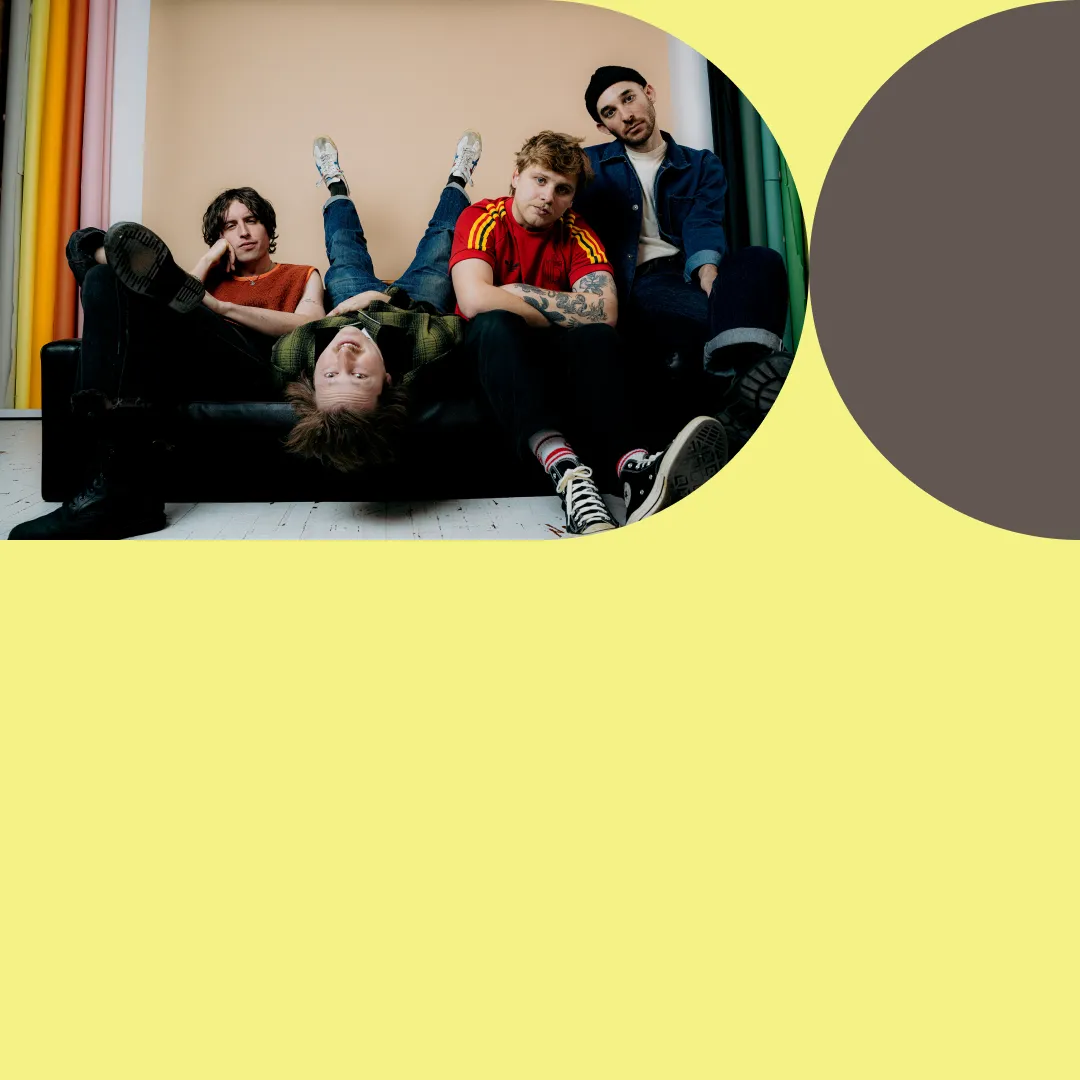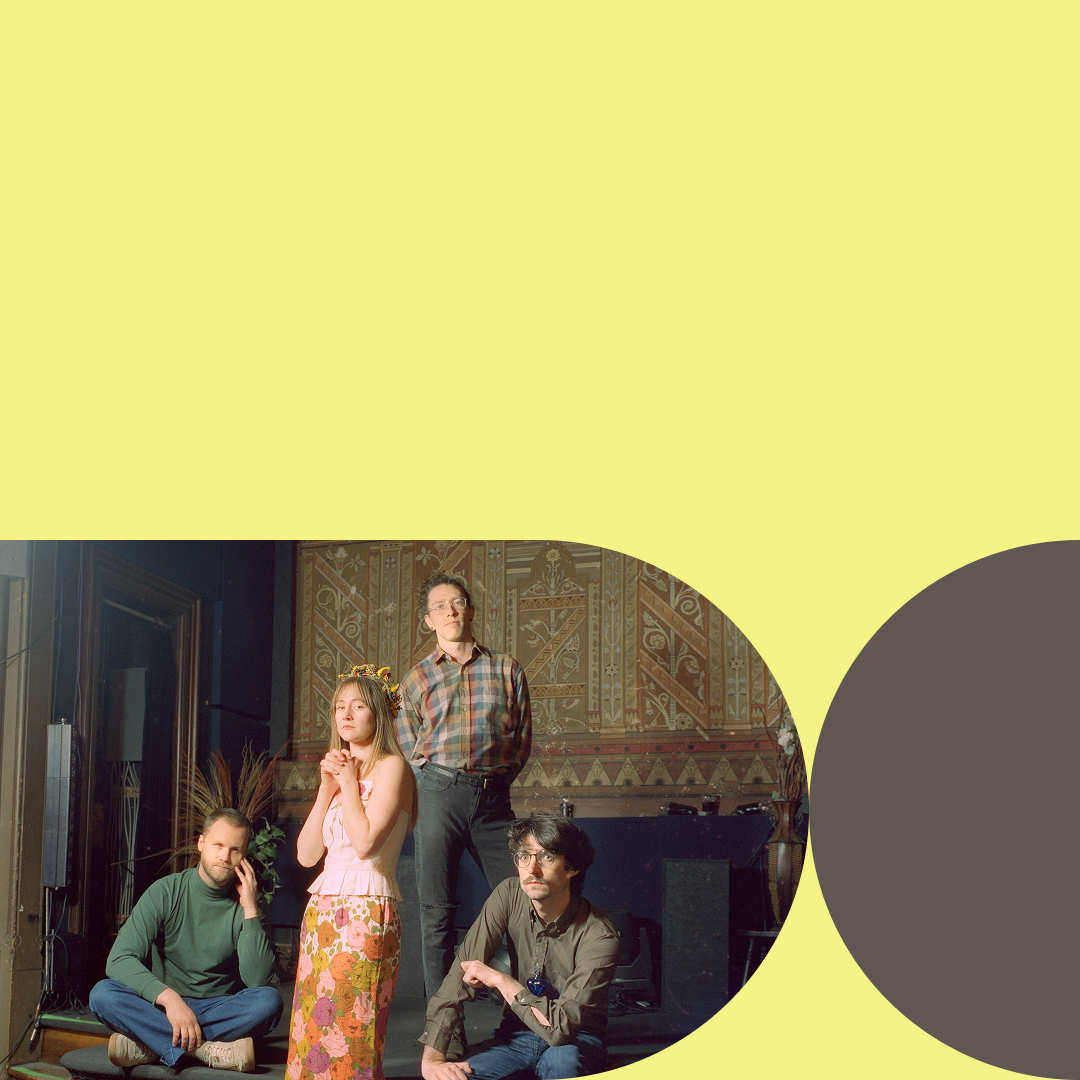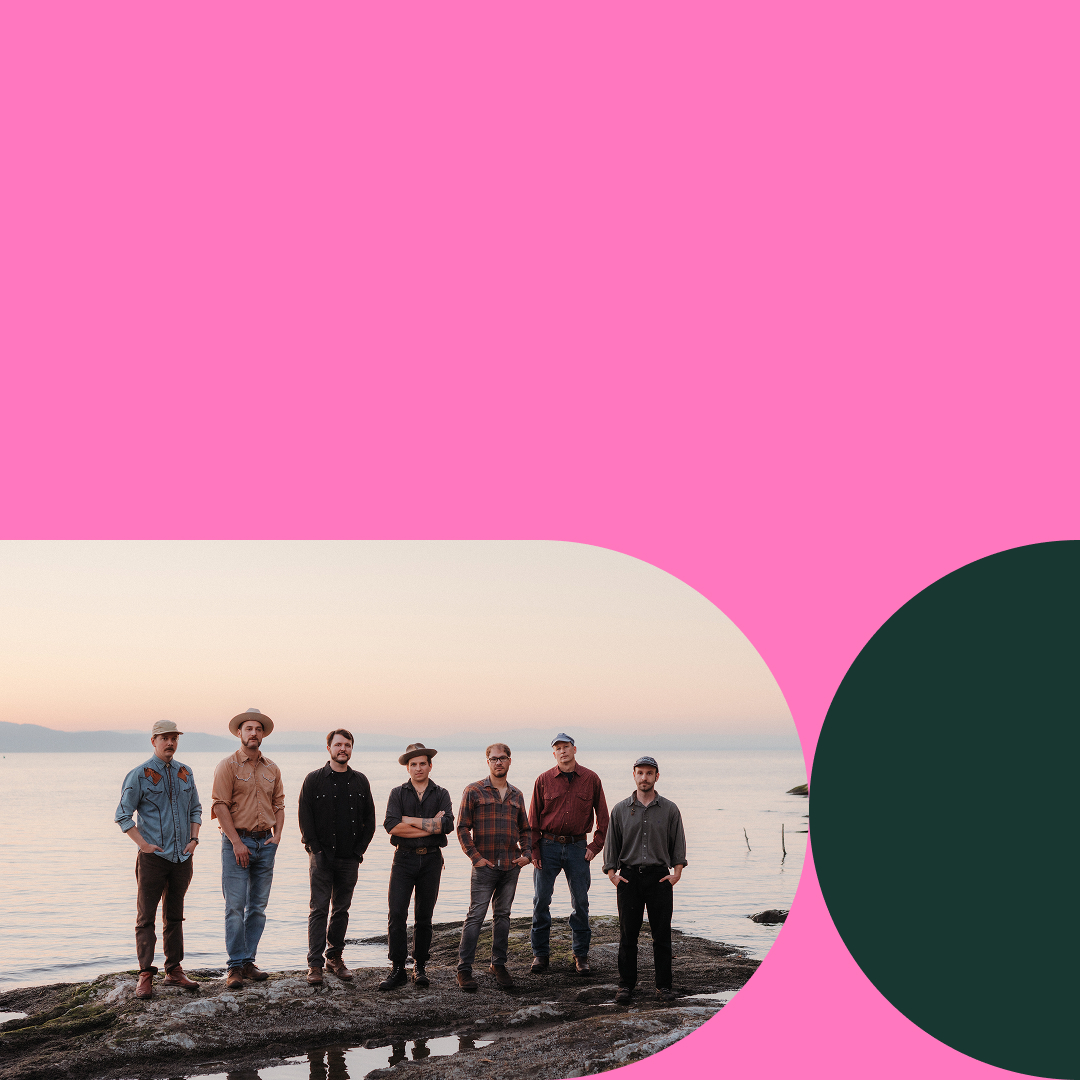
09.06
/
Center Stage
Roselit Bone
Portland, OR
After over a decade of touring, Roselit Bone have perfected an infectious and intense live show that has transfixed crowds in a nightly conversion ritual.
Previously described by Oregon Public Broadcasting as “a unique type of gothic country rock that borrows heavily from Mexican ranchera music, rockabilly and the same lonely and wide-open spaces that inspired the classic Spaghetti Western scores of composer Ennio Morricone,” the Portland 8-piece – led by frontwoman Charlotte McCaslin – have deepened, shapeshifted, and outdone themselves on their fourth full- length record, Ofrenda.
Album opener “Your Gun” begins quietly with guitarist Victor Franco’s tense, muted power chords as Charlotte seethes “I can’t stop crying long enough to fuck // and there’s a bullet missing from your gun.” The drums fire, and violent stomps and claps herald the arrival of the full band. Trumpets blare, violins swell, guitars thunder, and tambourine rattles convulsively. Saxophone oozes and bleats as the band stalks the ruins of civic and carnal relationships, and you know Roselit Bone is back.
While at times confrontational, showcasing the band’s unambiguous worship of early punk bands like Suicide and The Gun Club, there is a new level of subtlety and complexity on Ofrenda. Serpentine, distorted organs and Charlotte’s smooth, psychedelic guitar leads crawl through “The Sea In Silhouette,” a sultry, feminine anthem of collapse awareness. Cops kick over prayer candles on the short, beautiful “Veladoras”, itself a prayer for peace that bursts into a fiery dirge with harpsichord, church bells and swirling synths as the band briefly charge in and out of the song like an apocalyptic cavalry. On “Vassal or Vagabond,” Charlotte’s arpeggiated requinto guitar channels the haunting ranchera of Chavela Vargas under the strains of Faith Grossnicklaus’ heartbreaking, elegiac violin. The sinister baritone of King Dude harmonizes with Charlotte on the song’s mantra “Be you a vassal or vagabond, you’re not to speak until fired upon // We’ve seen the work of your lesser gods and we are done pretending.”
Regardless of where the needle drops on Ofrenda, listeners will be transported into a time of great tumult and transition in its players minds. Offering an explicit but tender look at Charlotte’s inner life, Ofrenda encapsulates the cycles of loss, survival and rebirth of the years between albums, which included a divorce, several family deaths, her gender transition, and the beginning of a new relationship – all set against the cataclysmic backdrop of the pandemic, a summer of police violence against her home city, and massive wildfires that blacked out the sun. These songs are still as visceral and heartbreaking as anything the band has done, but there is a new glimmer of hope on Ofrenda, the band’s first recordings since Charlotte’s gender transition. She reflects, “I feel strange when I listen to our previous album, Crisis Actor. The band played well, but the voice does not sound like mine and the person singing was totally lost, hiding behind characters on most songs. The album title is a hint that I knew this at the time. I'm glad it exists as a document of the turmoil before my transition, but Ofrenda feels more real to me. The band is tighter, my voice is my own, the arrangements are prettier. Where the lyrics are especially bleak, I tried to create a soft place in the music for the heart to rest.”
Charlotte’s songs – picaresque poetry that seduces and terrifies – are delivered with passion and indignation. “The Tower” is full of classic Roselit Bone surrealist imagery set to a smoldering, half-synthetic western orchestra. Charlotte sings about fleeing from war, “away from the trenches and wet meat smacking” and making love in a fertile land that may no longer exist, as dying mellotrons, half-synthetic choirs, advancing horns, and clockwork fingerpicked guitars drift like a cold wind over the wasteland. She coos helplessly, “we ran for our lives as the angels took power // and I could feel the wires uncoil.”
On the second half of Ofrenda , the songs begin to smirk with a positive upturn. “Crying In The USA” is the 90s neotraditionalist country cousin to Crisis Actor’s “Laughlin, NV”. It is rocking and raunchy, decadent and danceable, fatalistically deriding late-stage capitalism as Faith and guitarist Brian Crace trade pitch-perfect honky-tonk lines and the band mockingly cries in the background. Roselit Bone is perhaps at their best on songs like this and “Truth or Consequences”, – a ramped up ranchera full of Jordan Vale and John England-Fisher’s exuberant horns and ever rising harmonies. “Ain’t No Right Way To Feel'' devastatingly hints at the acceptance of goodbye, and the album’s closer and title track releases the grip of grief in a hypnotic cascade of dreampop synths and flamenco guitars before fading out on a hymn and a tinkling music box. These weary attempts to heal mark a new and important chapter for the band and a glimpse at the path forward. Looking back, listeners may even realize that the horrors of Roselit Bone’s back catalog were never fiction of Charlotte’s mind, but songs about the real, evil, living hell that we all survive.































